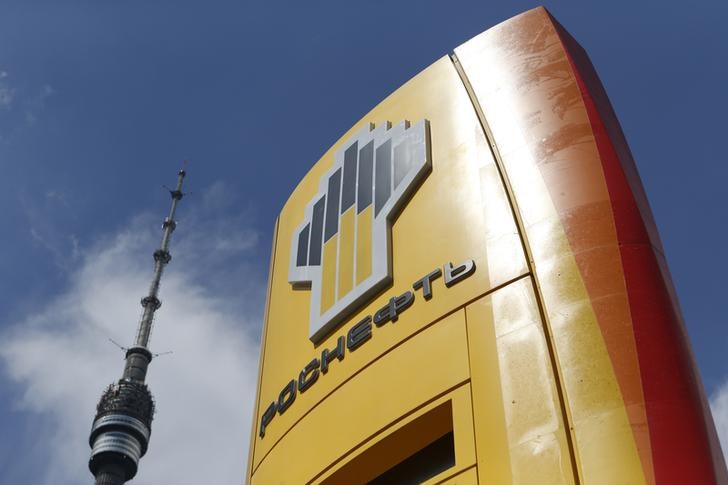By Denis Pinchuk and Katya Golubkova
MOSCOW (Reuters) - Russian state-controlled oil company Rosneft (MM:ROSN) will not be able to resume drilling in the Kara Sea this year after Western sanctions halted its cooperation with ExxonMobil (N:XOM) in a major setback for Moscow's energy ambitions, two company sources said.
The delay will be a blow to Rosneft, which was spearheading President Vladimir Putin's goal to increase output and secure Russia's energy dominance by exploring the Arctic, where Moscow is believed to have one of the world's largest oil resources.
In September, Rosneft announced it had found oil in the Kara Sea after drilling with Exxon at the Universitetskaya-1 well, the most northerly in the world. Oil resources in the Kara Sea are estimated to be comparable to those of Saudi Arabia.
The company was due to restart drilling this year but Exxon was forced to stop cooperation after the West imposed sanctions on Russia over its actions in the Ukraine crisis.
"There will be no drilling in 2015. There is no platform and it is too late to get one. The project was initially created for Exxon's platform," a Rosneft source said.
The second source confirmed this.
Asked for comment, Rosneft said: "In 2015, Rosneft will ensure implementation of its license obligations related to geological exploration in the Kara Sea."
Usually licenses give companies a certain period of time to complete work. Rosneft did not give the timeframe offered by the license.
The second Rosneft source said the company planned to resume drilling in 2016 but that commercial production would now be pushed back to beyond 2020.
"Usually, it takes 8-10 years from the first well to the first oil on the offshore but here you have such a difficult situation," the source said.
Russia is the world's top oil producing nation and output hit a post-Soviet high of an average 10.58 million barrels per day (bpd) last year.
But the country needs to explore new areas such as the Arctic or for shale oil because its resources in Western Siberia, Russia's main oil producing region, are depleting.
PLATFORM SEARCH
Rosneft was using the West Alpha platform, owned by Seadrill subsidiary North Atlantic Drilling (N:NADL), in the Kara Sea.
The rig returned to Norway in mid-October after completing the well in the Kara Sea in late September. The rig is on contract with Exxon until July 2016.
Due to severe weather conditions, drilling in the Kara Sea can only be conducted during a couple of months a year. The Universitetskaya-1 well is Russia's second offshore Arctic project after Prirazlomnoye operated by Gazprom Neft (MM:SIBN).
The first source said roughly a year and a half was needed to adjust the Kara Sea project for a new platform so in order to start drilling in July-August next year, Rosneft would need to start looking for a platform now.
"We expect to decide on the platform by April-May and will launch the tender soon. The choice is obvious -- there are a lot of platforms in the East, in China or South Korea, maybe from North Atlantic Drilling, maybe from Lukoil (MM:LKOH) in the Baltics," he said.
"There are a lot of platforms and this is not a problem even if it is not an ice-proof -- it can always be upgraded ... After oil prices have fallen it is two-times cheaper to lease platforms and supply vessels."
Western sanctions prevent Western firms from helping certain Russian companies, including Rosneft, to explore in the Arctic, in deep water or for shale oil, among other restrictions.

Valery Nesterov, an analyst with Sberbank CIB, said the main challenge would not be to find a proper platform but to address the safety of operations in an area where Russia lacks expertise.